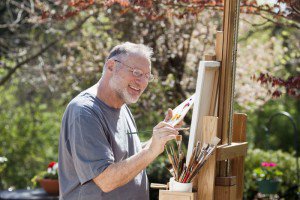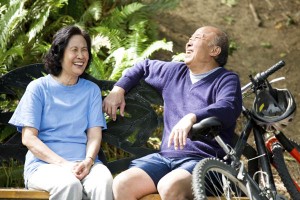Share This
Related Posts
Tags
Selling to Seniors
By Leah Etling on Apr 23, 2012 in News
As the Baby Boomers head into their retirement years, a new market for senior housing is opening up – niche residential communities that cater to active older adults. Concept living, based around activities like education, recreation, or belief systems, is a hot trend.
With today’s seniors enjoying longer life expectancies than ever before, the option to have full, active lives after retiring is an opportunity for residential project developers. Older adults might want to downsize from the large single family home where they raised their kids and lived out their careers, but they don’t want to give up any freedoms. In fact, the more affluent are often seeking high-mobility housing options, where a supported residential lifestyle can be combined with frequent travel to visit friends, family, or see the world.
 Some industry experts even anticipate that over time, the housing and care options for adults over 65 will morph into two distinct markets. Rather than the awkward combination of independent and assisted living we see today, there will be more independent offerings for each life phase as the 78 million Baby Boomers come of age. A recent study found that many Boomers are unhappy with traditional retirement communities and seeking more innovative options for their later years.
Some industry experts even anticipate that over time, the housing and care options for adults over 65 will morph into two distinct markets. Rather than the awkward combination of independent and assisted living we see today, there will be more independent offerings for each life phase as the 78 million Baby Boomers come of age. A recent study found that many Boomers are unhappy with traditional retirement communities and seeking more innovative options for their later years.
Here are a few of the concepts that communities are using as an entry point to attract active senior residents.
Life-long learning: These programs, in which seniors live near or on a college campus and can attend classes at free or reduced cost, are popping up at colleges all over the country. A trend-setting model was established 12 years ago on the campus of Lasell College in Newton, Mass. Today there are 225 residents, most of whom live independently and take college classes – the community even has its own designated dean. There is also a 38-bed skilled nursing home. Similar programs include Kendal at Oberlin, which is not on campus at the celebrated northern Ohio college but boasts a very close relationship. In California, Lance-Kashian and Fresno State are in development on a similar project where seniors will live in on-campus housing and attend the classes of their choice at Fresno State.
 Staying active: There’s nothing new about focusing a senior community around a golf course – it’s probably the oldest move in the playbook. But with many seniors today having kept up with physical fitness and sports throughout their lifetimes, communities are offering more recreational amenities. Hiking paths, Olympic-sized swimming pools for laps, full service gyms and other cardio options are popular. And of course, a top-notch golf course is still a strong sales point. The Fox Hill Club and Residences in Bethesda, Md., offers all of the aforementioned options, plus a full spa and on-site performing arts, to cater to active seniors of diverse tastes. Luxury senior residence developer Senior Resource Group, which has communities in California, Arizona, Florida and Oregon, has instructors on staff for fitness classes like yoga, tai chi and dance, all known for their emphasis on mindfulness and vitality.
Staying active: There’s nothing new about focusing a senior community around a golf course – it’s probably the oldest move in the playbook. But with many seniors today having kept up with physical fitness and sports throughout their lifetimes, communities are offering more recreational amenities. Hiking paths, Olympic-sized swimming pools for laps, full service gyms and other cardio options are popular. And of course, a top-notch golf course is still a strong sales point. The Fox Hill Club and Residences in Bethesda, Md., offers all of the aforementioned options, plus a full spa and on-site performing arts, to cater to active seniors of diverse tastes. Luxury senior residence developer Senior Resource Group, which has communities in California, Arizona, Florida and Oregon, has instructors on staff for fitness classes like yoga, tai chi and dance, all known for their emphasis on mindfulness and vitality.
Religion or sexual orientation: Faith-based organizations were some of the first to create elder care residences, many of which now have greatly expanded their offerings to more independent seniors. The more recent trend is in senior housing for the LGBT community. Gay & Lesbian Elder Housing (GLEH) is the nation’s first developer of affordable housing for this community, and the company is active in outreach, education and training on why this type of housing is needed and important. Triangle Square in Hollywood, with 104 apartments, was their first project. Recently, the city of Philadelphia announced that it would fund an affordable property for LGBT seniors, co-developed by dmhFund and Pennrose Properties, that will break ground later in 2012.
Micro-niches: For seniors who want to live among like-minded folks but have very particular interests, it’s not out of the question that you could also find a unique living experience. A quick search revealed communities created around interests in astronomy (Chiefland Astronomy Village in Florida), good energy (Rocinate inTennessee), art (Burbank Senior Artists’ Colony), sustainable living (Valverde Commons in Taos, New Mexico), and travel (Escapees RV community).
If you could create your own senior community around your hobbies or interests, what amenities would you offer?
